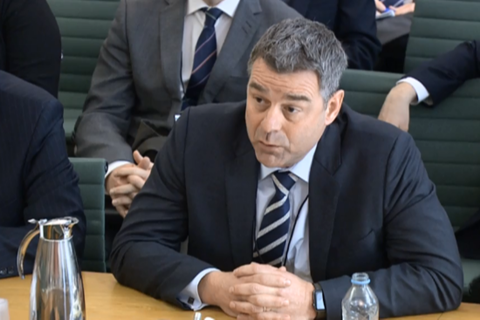Auditor insists ┬Ż1.3bn claim brought by Official Receiver on behalf of creditors ŌĆświthout meritŌĆÖ
Auditor KPMG misstated the value of two building contracts by ┬Ż352m, CarillionŌĆÖs liquidator has claimed in documents filed as part of an ongoing ┬Ż1.3bn claim on behalf of the doomed contractorŌĆÖs creditors.
Carillion was the UKŌĆÖs second biggest contractor, working on 420 public sector contracts when it collapsed nearly five years ago leaving ┬Ż7bn of debts.
The role of KPMG in its implosion has since come under particular scrutiny, with the Financial Reporting Council slapping four former auditors at the firm with huge fines and bans from the Institute of Chartered Accountants.
The Official Receiver, acting as liquidator for Carillion, filed an audit negligence claim in February this year with KPMG then filing its defence in July.
On Friday, the Official Receiver filed its reply, claiming that KPMG had ŌĆ£failed to respond to material aspects of CarillionŌĆÖs caseŌĆØ.
It says KPMGŌĆÖs defence did not address allegations that it failed to properly audit the accounting of 20 ŌĆ£significantŌĆØ contracts including its job at Battersea Power Station, where it worked on the first phase of the scheme, and the Msheireb Downtown Doha scheme, a new city being built in Qatar.
Giving evidence to a House of Commons select committee in February 2018 into CarillionŌĆÖs collapse the month before, former chief executive Richard Howson said he had visited the project in Qatar at least 60 times in the past six years in order to collect cash. ŌĆ£I felt like a bailiff,ŌĆØ he added.
In the year ending 2016, the value of the Battersea and Doha contracts was misstated by ┬Ż351m, the liquidator said. At the select committee hearing in February 2018, Howson publicly admitted the firm was owed ┬Ż200m on the scheme in Qatar.
ŌĆ£Had KPMG acted as a reasonably competent auditor, it would have detected these misstatements,ŌĆØ a Carillion spokesperson said.
KPMG has alleged that the true position on these contracts was deliberately concealed from it, a claim that Carillion said was not supported by evidence.
The liquidator said in its reply that this would have ŌĆ£required all relevant personnel in the project teams, business units and senior management to engage in a widespread and concerted fraud on the GroupŌĆÖs auditors, which they would not have done,ŌĆØ adding that, in any case, ŌĆ£a reasonably competent auditorŌĆØ would not have allowed the subject of an audit to withhold relevant documents.
A KPMG UK spokesperson told ║┌Č┤╔ńŪ°: ŌĆ£We believe this claim is without merit and we will robustly defend the case.
ŌĆ£Responsibility for the failure of Carillion lies solely with the companyŌĆÖs board and management, who set the strategy and ran the business.ŌĆØ





























No comments yet